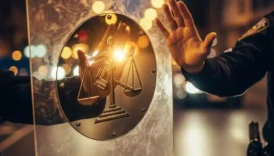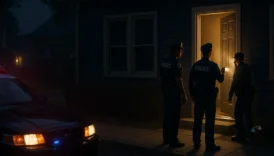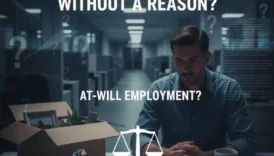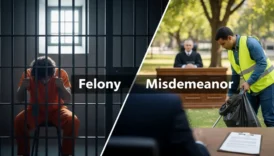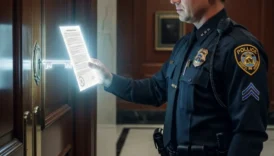Is It Legal to Use Dash Cam Footage in Court? A Clear Legal Overview
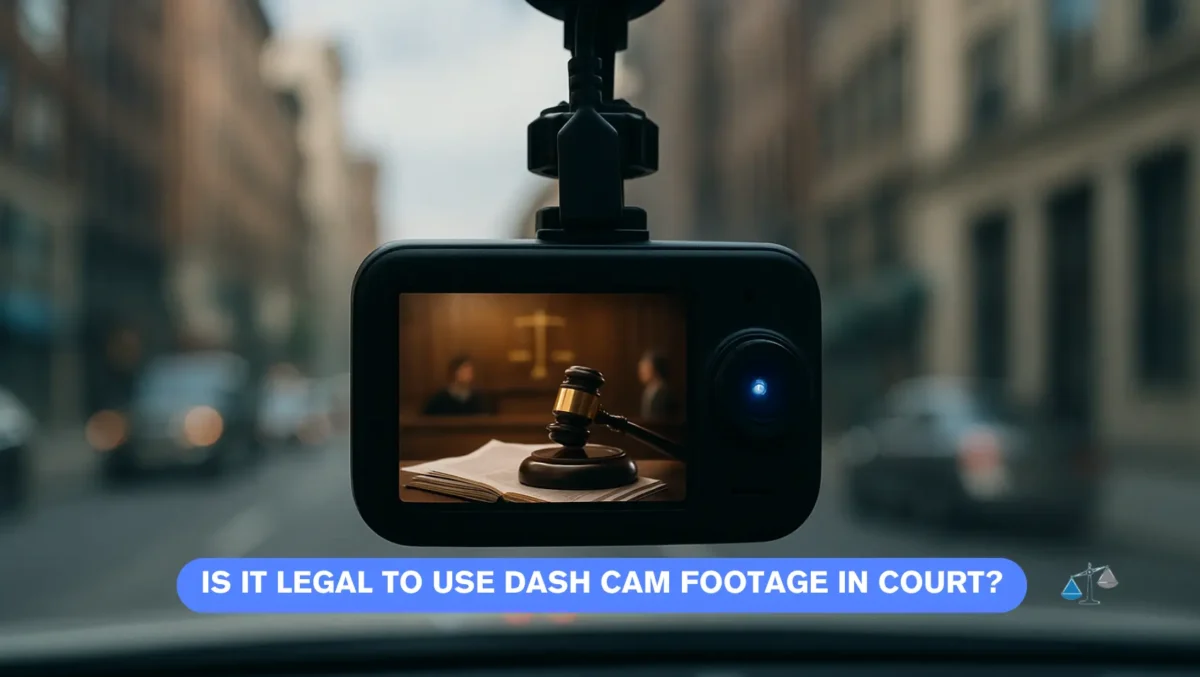
What Is Dash Cam Footage and Why It Matters
A dash cam, short for “dashboard camera,” is a small video recording device usually mounted on a vehicle’s windshield or dashboard. Its primary purpose is to continuously record what happens on the road while you drive. Many drivers install dash cams to protect themselves in the event of accidents, false claims, or disputes with law enforcement.
Dash cam footage has become increasingly popular because it provides objective, real-time evidence. When an accident occurs, a clear video can often answer critical questions: Who was at fault? Did anyone violate traffic rules? Was the driver distracted or reckless? Unlike eyewitnesses—whose memories can be influenced by stress or time—video footage offers an exact visual record of events.
Common Situations Where Dash Cams Help
- Traffic accidents: Footage can clarify who was responsible for the collision.
- Insurance claims: It helps resolve disputes quickly and prevents fraud.
- Police interactions: It offers transparency in cases of alleged misconduct or unfair treatment.
- Parking incidents: Cameras can record vandalism or hit-and-run damage when the vehicle is parked.
However, while dash cams can be extremely useful, their legal value depends on how and where they’re used. Different countries—and even states within the same country—have their own rules regarding whether dash cam footage is admissible in court.
“Dash cam footage doesn’t automatically equal legal evidence; it must meet certain standards to be accepted by a judge.”
Understanding these legal standards is essential before relying on a recording in legal proceedings. In the next section, we’ll examine how courts view dash cam footage and under what conditions it’s considered legitimate evidence.
The Legal Status of Dash Cam Footage in Court
Whether dash cam footage is legally admissible in court depends heavily on jurisdiction and evidentiary standards. In most countries — including the United States, the United Kingdom, Canada, and parts of the European Union — dash cam footage is generally allowed as evidence if it meets certain legal requirements. However, courts do not automatically accept every video; the footage must be authentic, relevant, and lawfully obtained.
How Courts Typically View Dash Cam Evidence
Courts often treat dash cam videos as supporting evidence, similar to photographs or witness testimonies. They can be used to:
- Verify a driver’s account of an accident.
- Demonstrate negligence or rule violations.
- Disprove false insurance or legal claims.
That said, judges and lawyers also evaluate whether the recording was taken in compliance with privacy and consent laws. For example, in some U.S. states, recording audio without consent could violate “two-party consent” laws. Likewise, recording private property or conversations can raise legal issues, especially if individuals had a reasonable expectation of privacy.
Examples of Regional Differences
| Region | Legal Status | Key Consideration |
|---|---|---|
| United States | Generally admissible | Must not violate state privacy or wiretapping laws. |
| United Kingdom | Admissible | Must comply with Data Protection Act and privacy rights. |
| European Union | Restricted in some countries | GDPR applies if personal data is captured. |
| Canada | Admissible | Depends on provincial privacy laws and purpose of use. |
In most cases, if your footage was recorded in a public space (like a road or highway) and not edited or tampered with, it is likely to be accepted as evidence. However, if it was obtained unlawfully—such as recording a private property or someone without permission—it may be ruled inadmissible.
“Courts don’t just care about what’s in the video; they care about how the video was obtained.”
To ensure your footage is admissible, it must be authentic, original, and legally captured. The next section explains what conditions determine whether dash cam evidence is accepted or rejected by the court.
Admissibility — When Dash Cam Evidence Is Accepted or Rejected
Even though dash cam recordings can be powerful evidence, not every video will hold up in court. Judges must determine whether the footage meets the legal standards for admissibility — meaning the recording must be reliable, relevant, and obtained legally.
Let’s explore the key factors that courts typically consider before accepting or rejecting dash cam footage.
✅ When Dash Cam Evidence Is Accepted
- Authenticity and Originality
The footage must be genuine, unaltered, and traceable to the event in question. Courts often ask for the original SD card or unedited file to ensure no tampering occurred. Metadata such as timestamps, GPS data, and file integrity play a major role in establishing authenticity. - Relevance to the Case
The footage must directly relate to the legal issue — for example, showing the moments before a traffic accident or capturing a clear view of an incident. Irrelevant segments, like random road footage, may be excluded. - Proper Chain of Custody
To maintain credibility, the recording should have a clear chain of custody — meaning it’s been handled and stored in a secure, traceable way since it was captured. If a video’s history is unclear, a judge may question its reliability. - Compliance with Privacy Laws
If the footage was recorded in a public space (like highways or city streets), it’s usually allowed. Courts are less forgiving when recordings are made in private settings, such as driveways or homes, where people expect privacy.
❌ When Dash Cam Evidence Is Rejected
- Illegal or Unethical Recording
If the dash cam captured private conversations or individuals without consent in areas where they have privacy rights, the court may exclude it — even if it proves fault. Example: Recording a neighbor’s property or inside another vehicle without consent. - Tampering or Editing
Any sign of trimming, enhancing, or editing the footage can render it inadmissible. Even simple modifications like adding subtitles or slowing down the video can raise suspicion. - Poor Quality or Incomplete Footage
If the video is blurry, lacks timestamps, or cuts off crucial moments, it may not provide enough clarity for legal use. - Violation of Local Laws
Some regions (especially within the EU under GDPR) restrict dash cam use entirely if personal data is recorded without justification. Violating these laws can disqualify the evidence and result in penalties.
Key Takeaway Table
| Condition | Accepted? | Reason |
|---|---|---|
| Recorded in public road | ✅ Yes | No expectation of privacy |
| Edited or enhanced footage | ❌ No | Tampering risk |
| Includes private property view | ⚠️ Depends | May violate privacy rights |
| Original, timestamped file | ✅ Yes | Authentic and verifiable |
| Audio recorded without consent | ❌ No (in two-party states) | Privacy violation |
“Dash cam evidence is only as strong as its integrity. The moment it’s altered or unlawfully captured, its legal value collapses.”
In short, dash cam footage can be a powerful legal ally, but only if recorded and preserved correctly. In the next section, we’ll look at the privacy and consent laws that every driver should know before using their camera.
Privacy and Consent Laws You Should Know
While dash cams are valuable tools for accountability, they also raise serious questions about privacy and consent. Recording others—especially when they’re unaware of being filmed—can lead to legal complications. To avoid penalties or the rejection of your footage in court, it’s crucial to understand how privacy laws apply to dash cam usage in your country or state.
1. Public vs. Private Spaces
The most important distinction in privacy law is where the recording takes place.
- Public spaces (roads, highways, intersections):
Generally, recording is allowed because people do not have a “reasonable expectation of privacy” in public. - Private property (driveways, homes, offices):
Recording here without consent can violate privacy laws. Courts may rule such footage inadmissible, even if it reveals valuable evidence.
“The rule of thumb: if you’re filming what’s visible to anyone on the street, you’re usually safe. Once you point the lens toward private property, you cross a legal line.”
2. Audio Recording Laws
Many dash cams also record sound. However, audio laws are much stricter than video laws. In the United States, states fall into two main categories:
| Type of State | Consent Requirement | Examples |
|---|---|---|
| One-party consent | Only one person in the conversation must consent (the driver). | New York, Texas, Illinois |
| Two-party consent | All parties being recorded must consent. | California, Florida, Pennsylvania |
If your dash cam captures conversations inside your car—like with passengers or police officers—make sure you know your state’s consent rules. Otherwise, you might accidentally commit a wiretapping violation.
3. Data Protection and Storage
In countries under the GDPR (such as those in the European Union), dash cam recordings may be classified as personal data if they capture identifiable faces, license plates, or voices.
This means you’re responsible for how that data is stored and used:
- Footage must not be shared publicly without a legitimate reason.
- It should be deleted once it’s no longer necessary for legal or insurance purposes.
- If you use your dash cam for business (e.g., fleet vehicles), you may need to display a notice informing others that they are being recorded.
4. Using Footage Against Someone
Even if your recording is legal, how you use it also matters. Posting dash cam clips on social media, for instance, can expose you to defamation or harassment claims. The safest approach is to share your footage only with your attorney, insurance company, or law enforcement.
5. Penalties for Violating Privacy Laws
Breaking privacy or consent laws—especially when recordings include private conversations—can result in:
- Fines or legal action against the driver.
- Disqualification of the video as evidence.
- Civil lawsuits from recorded individuals.
“In the eyes of the law, your right to record ends where someone else’s right to privacy begins.”
Understanding these boundaries ensures that your dash cam serves as a protective tool, not a liability.
Next, let’s look at some practical steps you can take to use your dash cam legally and effectively.
Practical Tips for Using Dash Cam Footage Legally
Owning a dash cam is not just about installing it and hitting the road — it’s about using it responsibly. A well-managed dash cam can serve as powerful protection, but a carelessly used one can lead to fines, lawsuits, or rejected evidence. Below are practical, legally sound tips to make sure your recordings stay admissible and ethical.
1. Use a Properly Mounted Dash Cam
- Make sure your dash cam doesn’t obstruct your view or violate local traffic laws.
- In some regions, windshield-mounted devices are restricted.
- Keep the device within the wiper area, typically near the rearview mirror, for both safety and legality.
“Even a valid recording can lose value if it was captured with an illegally placed camera.”
2. Record Only What’s Necessary
Avoid pointing your dash cam toward pedestrian walkways, private homes, or backseat passengers. Record only public roads and driving-related activity. This helps avoid violating privacy or data protection laws.
3. Keep Original Files Intact
Never trim, enhance, or alter footage once it’s recorded. Editing, even for clarity, may lead the court to question authenticity.
Instead:
- Save a backup copy of the full file.
- Keep metadata such as date, time, and GPS information intact.
- Label recordings clearly and store them in a secure location (preferably encrypted storage).
4. Disclose Recording When Appropriate
If you drive for work or transport passengers (e.g., rideshare, delivery), it’s often wise — or legally required — to inform passengers that a camera is recording.
Simple methods include:
- A small visible notice (“This vehicle uses a dash cam for safety and evidence purposes”).
- Mentioning it verbally when passengers enter.
5. Share Footage Only With Authorized Parties
Never post dash cam clips on social media or public platforms. Doing so can breach privacy laws and harm ongoing investigations. The safe route is to share footage only with:
- Law enforcement (upon request).
- Your insurance provider.
- Your attorney.
6. Regularly Check Your Local Laws
Dash cam regulations vary widely — even between neighboring states or countries. Before relying on your footage:
- Review your state traffic and privacy laws.
- Check whether audio recording is permitted.
- Confirm if data storage or retention limits apply.
7. Maintain Device Functionality
Ensure your camera is working properly and captures clear video and timestamps. A blurry or incomplete recording can weaken your case in court.
8. Consult a Legal Professional for Disputes
If you’re unsure about submitting your footage or if someone challenges its legality, consult an attorney. They can verify whether your recording complies with evidence rules and advise on the safest way to use it.
“A legally compliant dash cam is more than a gadget — it’s your silent witness on the road.”
Used properly, dash cams can protect drivers from false claims and help courts reach fairer outcomes. Up next, we’ll summarize the overall verdict: Is dash cam footage really worth using in court?
Conclusion — Is Dash Cam Footage Worth Using in Court?
In most situations, yes — dash cam footage can be worth using in court, as long as it’s recorded legally and preserved correctly. A well-documented video can make the difference between a quick resolution and a prolonged legal dispute. However, its effectiveness depends not on the camera itself, but on how responsibly you handle and present the footage.
When properly captured, dash cam recordings can:
- Strengthen your credibility as a driver.
- Provide objective proof in accident claims or insurance disputes.
- Support investigations and clarify unclear circumstances.
Still, the usefulness of dash cam evidence can quickly diminish if you ignore privacy laws, edit or share footage publicly, or fail to keep the original file intact. Even a clear video can be dismissed if obtained or used improperly.
“Dash cam footage can protect you, but it can also work against you — legality and context determine which side it supports.”
Ultimately, dash cams are a powerful modern tool for justice, accountability, and transparency on the road. But like all evidence, their power lies in lawful and ethical use. If you drive regularly, take time to understand your local laws, store footage securely, and seek legal advice when in doubt. Doing so ensures your dash cam remains an ally — not a liability.
Most Curious Questions About Dash Cam Footage
Is dash cam footage admissible in all courts?
Not always. Most courts accept it if it’s authentic and legally obtained, but some jurisdictions restrict recordings that violate privacy or consent laws.
Can dash cam videos prove fault in an accident?
Yes. Clear footage showing road conditions, driver behavior, and traffic signals can strongly influence how fault is determined.
What if my dash cam records private property?
If private property or individuals are recorded without consent, the footage might be ruled inadmissible. Always limit recording to public roads.
Do I need consent to record passengers or conversations?
It depends on local laws. In some U.S. states and EU countries, you must inform or get consent from all recorded individuals, especially for audio.
How long should I keep dash cam recordings?
Keep them until any insurance or legal claims are resolved. Delete unnecessary recordings regularly to comply with data protection laws.
Can dash cam footage be used against me?
Yes. If your own footage shows negligence, traffic violations, or unlawful actions, it can be used as evidence by the opposing side.
Are there penalties for illegal dash cam use?
Yes. Violating privacy or wiretapping laws can result in fines or even criminal charges, depending on jurisdiction.
Can I post my dash cam videos online?
It’s not recommended. Publicly sharing identifiable people or license plates can lead to defamation or privacy complaints.
Do courts require timestamped videos?
Yes. Time and date stamps, along with GPS data, help establish authenticity and strengthen your case.
Should I consult a lawyer before submitting dash cam footage?
Always a good idea. A lawyer can confirm admissibility and prevent you from unintentionally breaking evidence or privacy rules.

